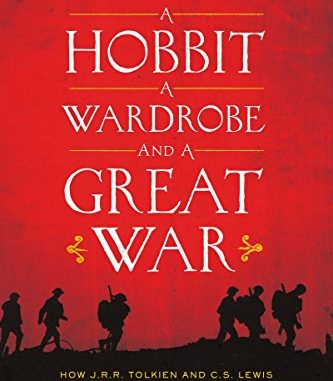
Hey, everybody! Welcome back to Tumnus’ Bookshelf, where we review any and all books written by, about, and inspired by CS Lewis, The Land of Narnia, and The Inklings. For today’s review, we will be looking at Joseph LaConte’s book A Hobbit, A Wardrobe, and A Great War: How J.R.R. Tolkien and C.S. Lewis Rediscovered Faith, Friendship, and Heroism in the Cataclysm
This book is currently being adapted into a new documentary series for streaming.
Title: A Hobbit, A Wardrobe, and A Great War: How J.R.R. Tolkien and C.S. Lewis Rediscovered Faith, Friendship, and Heroism in the Cataclysm of 1914-1918
Publisher: Thomas Nelson.
ISBN-10: 1725085089
ISBN-13: 978-1725085084
Summary:
Often relegated to a brief chapter or two in the biographies of their lives, Joseph LaConte pulls back the curtain to take a deeper look at how World War I influenced the respective works of CS Lewis and JRR Tolkien. Beyond just being a wartime memoir, LaConte looks at the world at the turn of the 19th century and the rising worldviews, politics, and situations that led to the war they both found themselves in and how Lewis and Tolkien rediscovered through it all virtue and faith and what they strove to communicate in their works.
Review:
Despite being called “The Great War” it wasn’t until fairly recently that a greater deal of books and films started to delve into the story of the First World War. For years it had often been stressed in writing courses that if a writer were to pick a World War to focus on, World War II was preferable as we knew who the Allies were fighting, what they were fighting for, and just how bad the villains were. Whereas when it comes to World War I, one of the most famous stories is that of the Christmas Eve truce in which the British and German armies declared a temporary truce for Christmas and engaged in fun, and games as they exchanged gifts and sang carols together. There is a certain air of ambiguity to the First World War that can make story telling difficult.
However between films like 1917, Peter Jackson’s acclaimed documentary They Shall Not Grow Old, and even its usage in blockbusters like Wonder Woman, this chapter of world history has begun to be closely examined with new eyes. Among the many chapters of World War I that has been studied much more closely has been the service of CS Lewis and JRR Tolkien in World War I. They had never spoke much about their experience, as at that time, it was something that wasn’t spoken of in polite company. It was through journals, letters, and even classified documents, some of which only have just begun to see the light of day, that we begin to understand what they went through, and just how much the war influenced their worlds.
While most biographies on these two may look at this part of their lives, it is typically relegated to a chapter. Considering it is one of the most pivotal events in 20th century history, and it played a profound impact on a number of artists, it deserves even more examination. Tolkien and Lewis were more than writers, or professors, or even Christians: they had also been soldiers once and that experience had a profound impact on their lives and the memories of what they encountered would linger in their imaginations long after the last shot was fired. Joseph LaConte’s book A Hobbit, A Wardrobe, and A Great War: How J.R.R. Tolkien and C.S. Lewis Rediscovered Faith, Friendship, and Heroism in the Cataclysm takes closer look at this chapter of their lives diving into much greater detail then the brief snap shots that most biographies can provide.
However, LaConte goes beyond just looking at the impact of the war on Lewis and Tolkien and their mythmaking. He also turns a careful eye to the other sociological and geo-political events going on during the turn of the century including the Eugenics movement, the rise of fascism, and the dawn of Communism. He ends up asking the readers a very critical question, one not considered even by the best biographers: in this backdrop, not only because of the war, but in a society trending in such a downward spiral, why would their works see the light of day?
We learn that, perhaps like the heroic figures in their own worlds, they held to the belief that no matter how dark or how terrible the world may seem to become there was still light and good that could not be quelled by the scream of bombs or the fall of houses, let alone the tyrants and mad men popping up around the globe at the time. Not only did they fully intend to convey this belief and celebrate heroism, but celebrate the virtues and beliefs they shared.
Like any good story teller, LaConte begins by establishing the world at that time. In this case filling in the readers on the causes of the First World War, before delving into the lives of Tolkien and Lewis up to the start of the war. While most fans undoubtedly know the few details they have left for us, and biographers have chronicled, LaConte supplies them with context, fleshing out these narratives. You honestly feel for a moment you are at the Battle of Somme with Tolkien or with Lewis at Arras.
Then he dives into their works, contrasts and compares them not only with each other, but with their contemporaries, like TS Eliot, and even uses them as a lens into that era. While neither The Lord of the Rings or the Narnia books would be described as war stories in a strict sense, the conclusions LaConte draws are shown to be heavily supported by textual evidence from the books, essays, and letters of Lewis and Tolkien. This only adds further context to their respective works and enriches the experience of revisiting their imaginary worlds as an adult. He wraps up the whole journey by looking directly at the key virtues and themes that Tolkien and Lewis were celebrating in their works.
LaConte’s book is accurately researched and doesn’t read like a dry history text. Much of it comes form his own personal connection to the Great War. His grandfather had fought in the war, and he had long read through the letters and diaries left behind since he was young. Thus LaConte’s passion for this time period shows clearly. Anyone can write about history, it takes someone who honestly cares about the subject to make you feel and think about a topic as you read about it.
For lovers of the Inklings, and World War I historians this book is a welcome gift. Not only does it shed some greater light on the lives of these two founding fathers of the modern fantasy genre, but it helps provide greater context to their respective worlds, the backdrop in which they wrote, and so much more. Reading through the book makes me even more interested in checking out the documentary series. If the book is any indication, it will no doubt be a labor of love that will be highly informative and will shed some much needed light on one of the most pivotal moments not only in 20th Century History, but the lives of two of the founders of modern fantasy literature.
Five out of Five Stars.
Buy the Book on Amazon.com

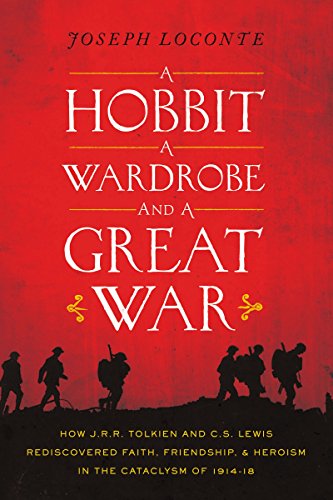
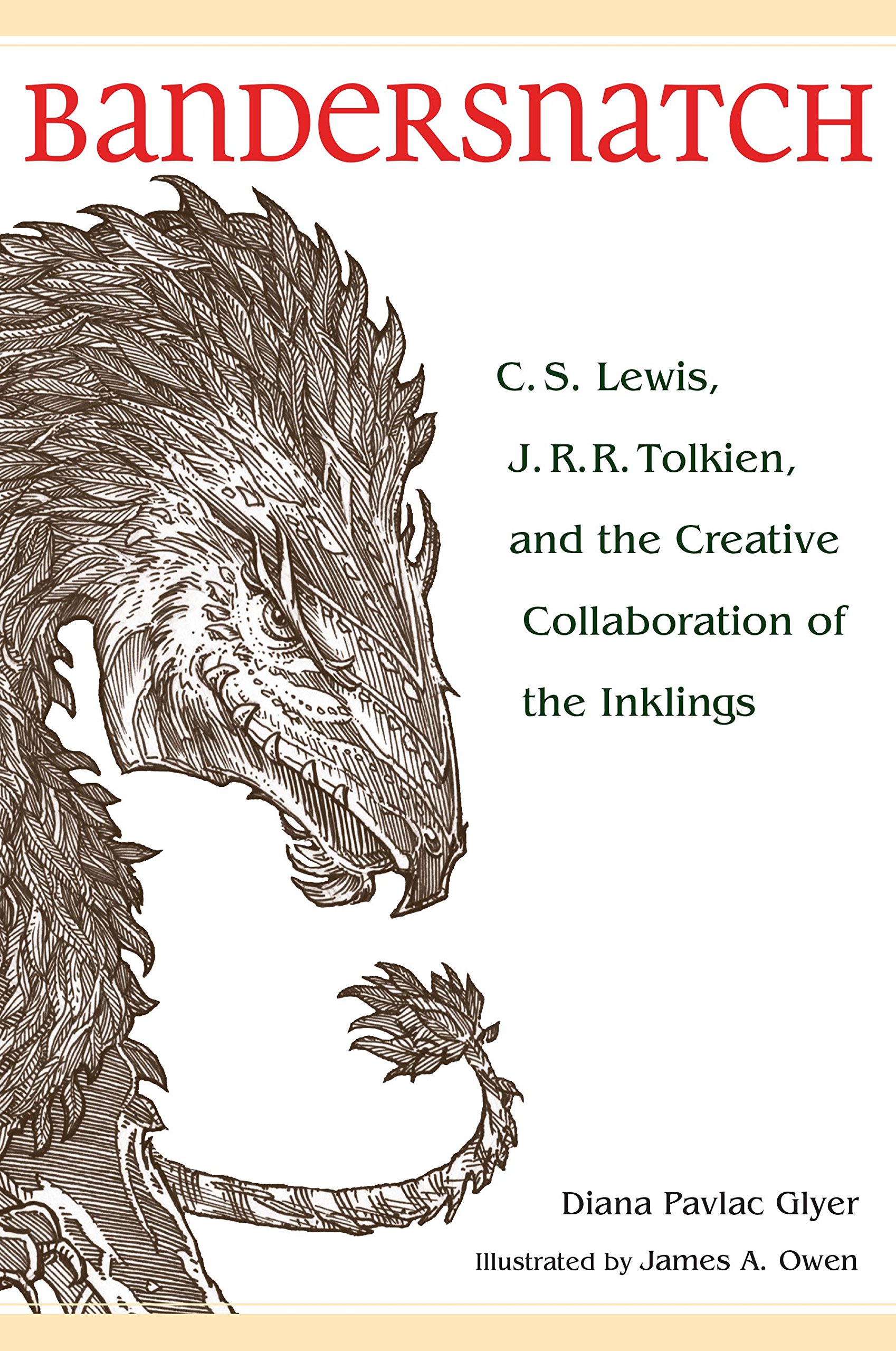
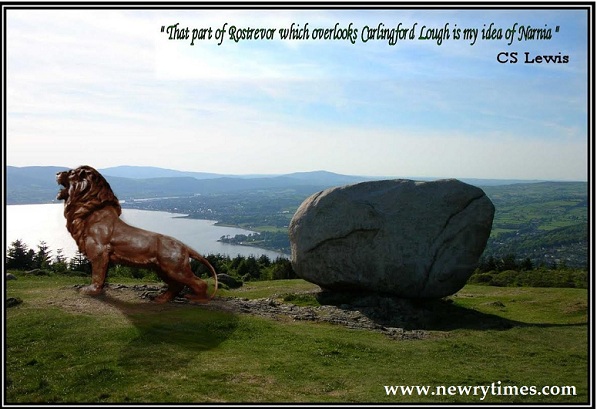
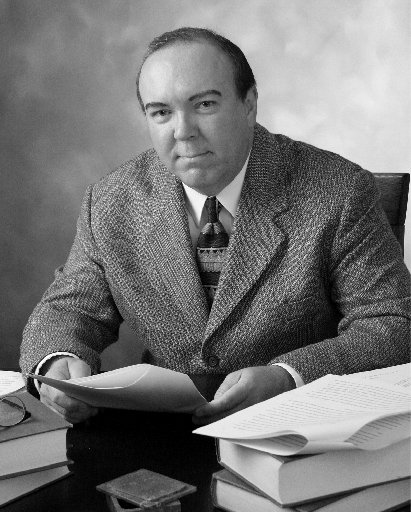
Great review, I can’t wait to read it! I just added a link that the book is being adapted as a documentary series for streaming: https://narniafans.com/2020/01/young-c-s-lewis-documentary-series-now-in-development-for-streaming/